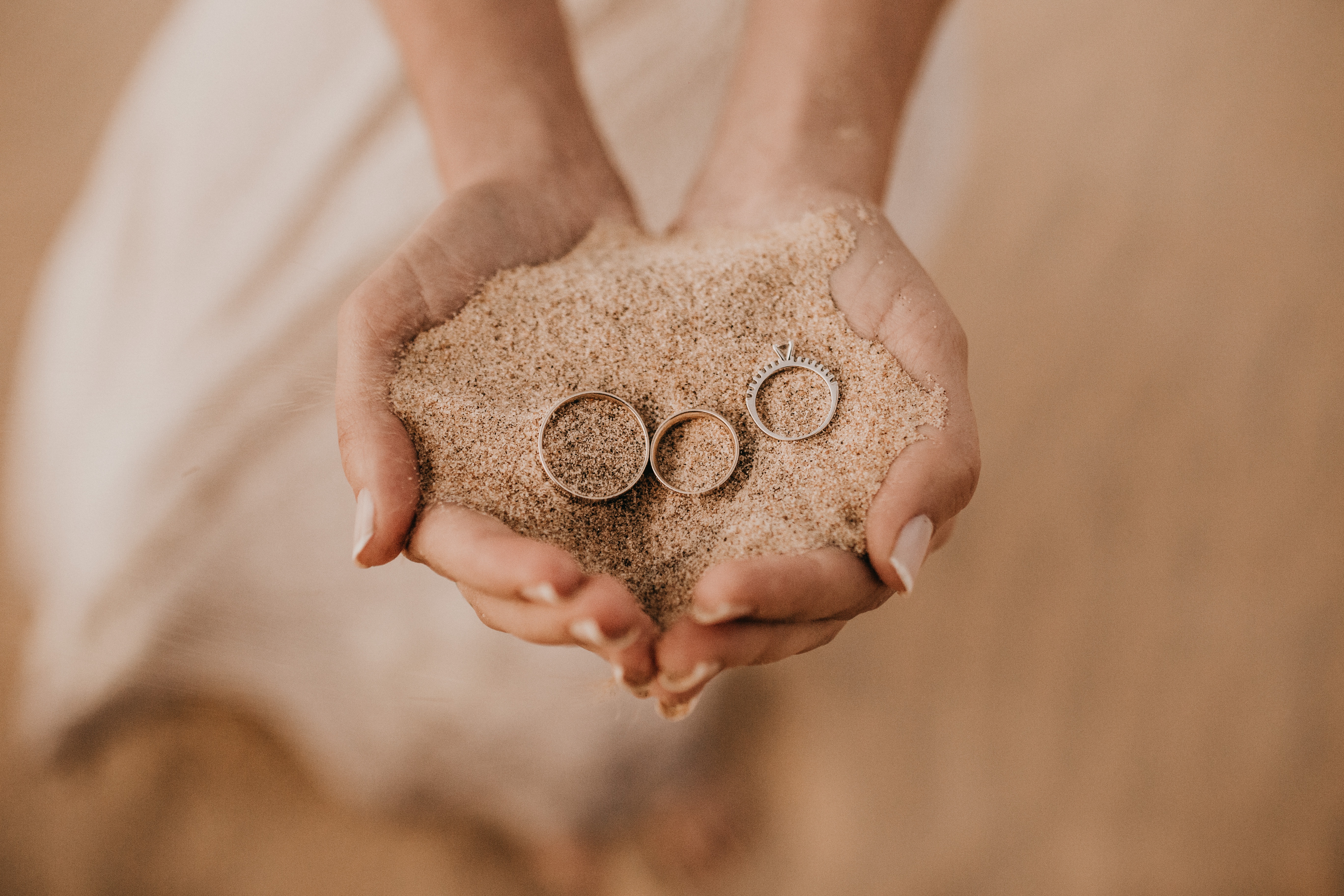
Where was God when I was abused?" Isn't this THE question we want answered?
You know what I think? I think it's not really a question of "where were You, God?" but a questions of "why did you let this happen to me?" And there's a lot of overlap between the two.
I know -- ouch -- that bringing this up is risky business. If you're mad at God for not protecting you or your loved one(s) during the abuse, you're maybe not gonna want to be reading a "God-blog."
On the other hand, you may not feel that way at all, and talking about God will work just fine for you.
Or, maybe you are curious, or you'll find the information and encouragement here is helpful enough to offset your reservations, and that would be lovely. For both of us. Really.
I hope you will hang out long enough to see that we entertain all kinds of questions, thoughts, and options here. We do it nice. But we do it. I mean, I want this to be a place where you can ask! And where it's okay if I don't know, ha ha. Especially that. 😉
Or I get it wrong (I won't mean to -- I'm a perfectionist, so I don't like getting it wrong!). But there's lots and lots of grace floating around here. It's a grace-space.1
As for the BQ (Big Question), I'll cut to the chase (spoiler alert, I guess): I do not know why bad things happen to good people, and especially to innocent people, like children. I just don't have those answers. Stick with me, if you will, because I'm gonna unpack the question and my thoughts as we go on here.
But let me put out kind of a "fair warning" as we tackle this really difficult subject. Even though I don't know why, and frankly I can't imagine why He would let me or any other little person be victimized, I accept that He is God, and that I am not, and that that means I won't always "know." I choose to trust God in spite of what I don't understand. And that (naturally) will be reflected in my writing. Just a head's-up for some of you.
You don't have to like God, trust God, or even believe in God. I hope you'll stick around anyway; even if you don't like this post or my reasoning, there's some great information in this website. And truly, I welcome discussion, even disagreement, -- which reminds me! Please!! No mean-spirited slamming. This blog is a snark-free zone. Survivors of sexual abuse and trauma have had enough meanness and snark thrown at us in life; we're not gonna do it here.
All-righty, then. On to the story . . .

Does the bible condone sexual abuse?
I'm not a theologian, but one doesn't have to be a theologian to recognize that the Bible tells several stories about sexual abuse and rape. It also has stories about abuse in a more general context, not specifically sexual.
As you probably know, women in ancient history were almost universally considered property, and being used and abused was pretty much a cultural norm. God doesn't explain why abuse occurs, but he never condones it. The Bible tells the stories, but the Law (given by God) called for an abuser to face consequences ranging from fines to death (check out Deuteronomy 22:25-27, 26, 28-29 just for one example).
Did you look at the beautiful image above? I think it is just stunning. What a work of art. I love it just because it's so beautiful, but it also fits perfectly with the Old Testament story I had in mind for this blog post.
Well, maybe not perfectly; after all, the woman in the image is beautiful, her hair and makeup are flawless, and I'm pretty sure she isn't dressed as an Old Testament servant would have been.
And even if her appearance was culturally and historically accurate (which I'm certain it isn't), the woman in this image has definitely not been wandering for days in the hot, barren backroads of the desert.
Ah, those pesky details. I love the picture, anyway, and I'm sticking with it. 😉 Seriously, though. The story of Hagar is one of my favorite Bible stories. You'll find it in Genesis 16:1-162 and 21:8-12.3
three's a crowd: Abraham, Sarah, and hagar

On the surface, this is just an interesting story, filled with female drama. But there's a deeper storyline going on, too: this story is also about trusting God.
Let me set the stage: Abraham is the patriarch of the clan. His wife, Sarah, is well past her prime, and sees no hope of conceiving a child of her own. However, God has promised Abraham that he will be the father of many nations and will have as many descendants as there are stars in the sky (Genesis 15). Hagar, an Egyptian woman and Sarah's slave, is the the third character in the story.
Back in their day, as I understand it, there were two kinds or classes of wives. There were free wives and slave wives (concubines). Sarah would have been a free wife. She was not born into nor sold into servitude. Hagar was not a wife or a concubine; she was Sarah's "slave" or "servant."
This was a position she might have found herself in if she had been purchased, captured, given as a gift, or, if she was alone in the world, perhaps chose for herself as a way to survive. The Israelites were instructed to treat their slaves pretty well, and although Hagar's story pre-dates the Mosaic Law, it doesn't pre-date God, and I believe the Bible shows that Abraham lived by godly principles (imperfectly, yes, but isn't that true of all of us?).
The Bible does not say that Hagar was sexually abused, nor should we presume (in my humble opinion) that being the servant of the First Lady of this important family brought with it anything but the respect due a valued slave.
Sarah was Abraham's primary (and at that point, his only) wife and was expected to produce an heir. She had failed in that duty, and as the years went by, she lost hope in her own ability to conceive.
So, in complete accordance with the culturally and morally accepted rules of their world, she sent Hagar in to act as a surrogate. Sarah offers up her slave to her husband -- thus making Hagar a concubine, or secondary wife.4 What we might find distasteful (or worse) was pretty much a promotion for Hagar.
Although. Um, the Bible says nothing about Abraham objecting. So there's that. In fact, it says that he listened to his wife! Sarah must have been pretty persuasive -- or maybe he didn't need much persuading.
You know, in fairness, humanly speaking, neither of them were out of line. Wives routinely offered up their slaves to bear children on their behalf.
However, God had promised this particular wife a child of her own. And God had promised this particular husband an heir. Rather than trusting in God's timing, as they got older, they began to believe they needed to solve this problem on their own.
Some commentators have said that Abraham should have said, "no," and trusted God more. Which I think is a good reminder to all of us that sometimes our temptations and disobediences are wrapped in perfect cultural and social acceptability.
That is, when we come to the fork in the road, the wrong path isn't always obvious. In fact, it might look pretty attractive.
Hagar's story of abuse

You can guess what happens next, right? Sarah's bright idea is a success! Unfortunately, when Hagar discovers she is pregnant with Abraham's child, she apparently cops an attitude toward Sarah (Genesis 16:4). Sarah might be barren, but she is still First Lady of the clan, large and in charge.
So they get in a big fight, and she mistreats Hagar (v. 6), who flees to the desert. The desert in question is probably the Negev desert, a very unpleasant place to be when all you have is morning sickness and a goatskin canteen of rancid water.
The angel of the Lord found her, we're told, sitting next to a spring (where she was undoubtedly refilling that goatskin, right?). They spoke, and he told her to return to Sarah. Whaaaat!? Yes. And he promised to bless her with a son and many descendants.
What is amazing about this is what happened next. Hagar says "you (God) have seen me."
Hagar does return to Sarah, and for more than a dozen years, we hear no more about their relationship. Hagar's son, Ishmael, grows into a strong, difficult personality, as was prophesied by the angel of the Lord all those years before (see Genesis 16:11-12 for this).
Ishmael is 14 years old when a son is born to Sarah and Abraham (in God's timing, not Sarah's). They named him Isaac. When the baby was old enough to be weaned, there was a celebration during which Ishmael was disrespectful.
Sarah had had it with Hagar and her rebellious teenager, and with Abraham's reluctant agreement, once again gives them the boot. They wander in the desert until the boy succumbs to the elements and falls asleep beneath a bush. Hagar sits some distance away, weeping, expecting her son to die at any moment.
But God was watching. He saw it all. He always does. The angel of the Lord spoke to her and told her that God had heard the boy crying. He heard him.
Hagar's story has a reasonably happy ending, it seems. God sustained them in the desert and she helped her son find a wife (Genesis 21:17-21). Since Ishmael eventually married, maybe Hagar lived with them and became an old lady doting on all her grandchildren (Scripture doesn't actually tell us). "The End."
God sees you in your trauma
But here's the thing. Could we jump back to Hagar's first desert adventure? That's the part of her story that really speaks to me personally, and I want you to really take notice of what Hagar said then. It's the point of this article.
Even in all her trials, tribulations, and turmoil, God saw her. I can imagine her gazing upward in astonishment as it sinks in, and kind of slowwww-llll-yyy- whispering the words, testing them as they cross her lips: "You are the God who sees me."
But he didn't change her circumstances. He didn't really rescue her in the sense that you and I would prefer it to happen.
I cannot explain that. I am as astonished by it as you are. But it resonated with me the first time I studied it in preparation for leading a women's sexual abuse group, and it resonates with me still. He saw her.
I think there's something important there. In a nutshell, it means that he sees you, too. God has not overlooked you.
In the barren wasteland that is your abuse story, even though you can't see him, feel him, or even believe he could possibly care about you, he has been there all along, caring, mourning the harm done to an innocent.
I don't know what that says to your soul. Maybe nothing. Or, maybe you are having a moment right now -- like Hagar, you have suddenly realized that God was there, and that even though he didn't change your circumstances, he saw you.
I can't wrap this up in a tidy package with an answer for you. I, too, wish that he'd changed my circumstances 'way back then. That bad things hadn't happened to me.
That said, I have found it extremely comforting to take Hagar's words as my own: "You are the God who sees me." God did not forget me, he did not abandon me, and he does not condone my abuse.
It's okay if you aren't with me there. But, It's God you need to have a chat with, not me. Share your pain and anger with him.
There is beauty even in the desert, my friend. Look for it. God's voice can be hard to hear, but it's worth trying.
Maybe, just maybe, if you listen in the silence, you will hear his still, small voice -- like a breath or a breeze -- whispering to you, "I hear your cries. I am with you. I see you."

we made it!
Thanks for sticking it out with me -- we got through an entire conversation on a really tough subject. And I know we may have gotten through it with completely different opinions and maybe I even made you really, really angry.
Can we keep talking, please? I learn from you-all as much as you might learn from me.
What part, if any, of Hagar's story resonates with you? Let me know in the comments below.
References

Let's Chat!
What part of Hagar's story, if any, resonates with you?
Drop me a comment below and let's talk about it!

What resonates with me is, as you put it, “sometimes our temptations and disobediences are wrapped in perfect cultural and social acceptability.” Just because an action or attitude or belief is considered by others to be okay/right/acceptable doesn’t mean it IS. That is an important truth to remember, especially when making life-impacting decisions.
I attended a church service on 2015 where the guest speaker gave an answer for the, “Where was God when I was being abused,” question. He said that when a person is abused, Jesus is there yelling at the abuser, “DON’T DO THAT!!!” He said God does not want anyone to be abused, but each person has the ability to ignore what their spirit (or conscience) tells them, and abusers tend to silence the voice inside that says, “STOP!” I found that answer to be comforting to me. I know many people say, “God could have stopped it,” and I know that is technically true, but I also believe God gave us free will and He rarely interferes with that, so when my abuser chose to molest me, that wasn’t God ignoring me or not caring about what happened to me; it was my brother choosing to do the wrong thing and God allowing it because my brother had free will. I don’t know if that makes sense to anyone else, but it was my takeaway and fits with Hagar’s story, as well.